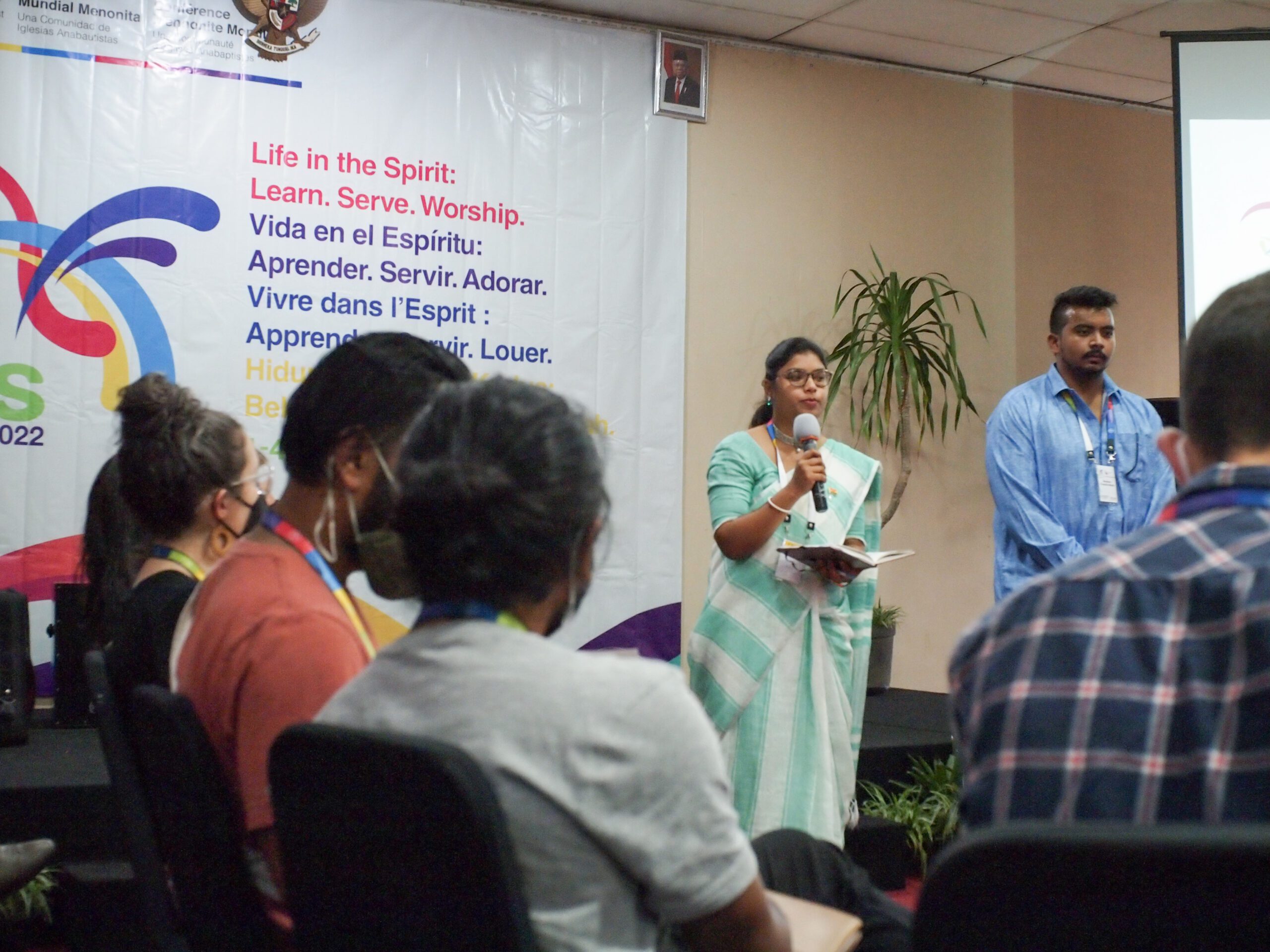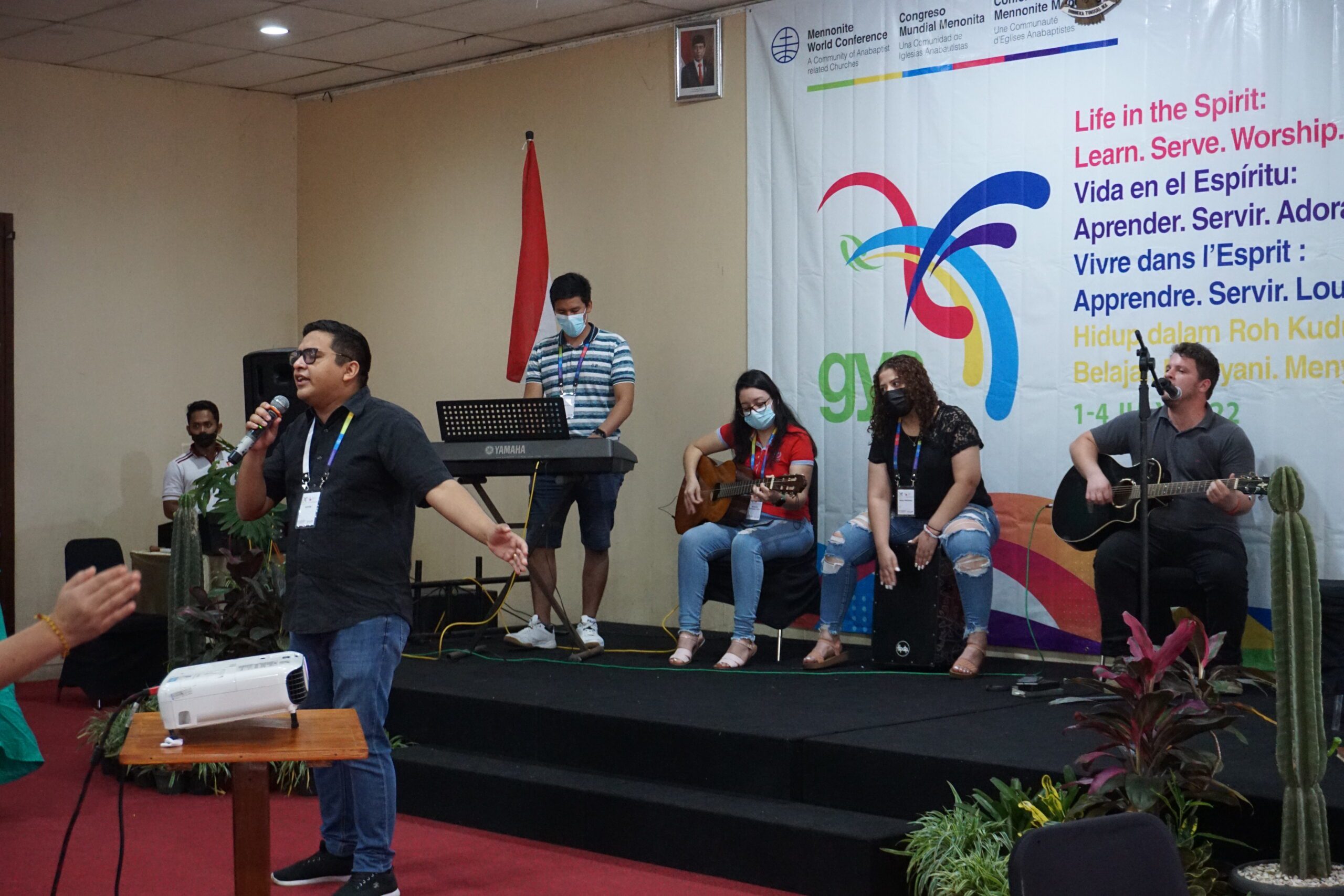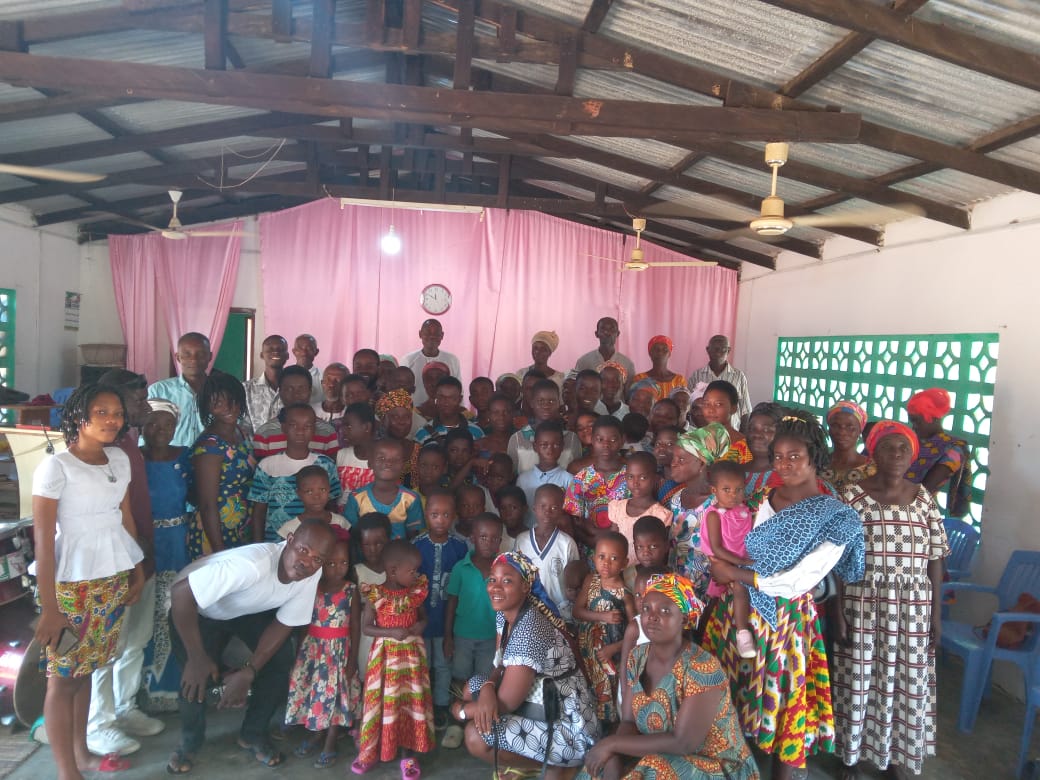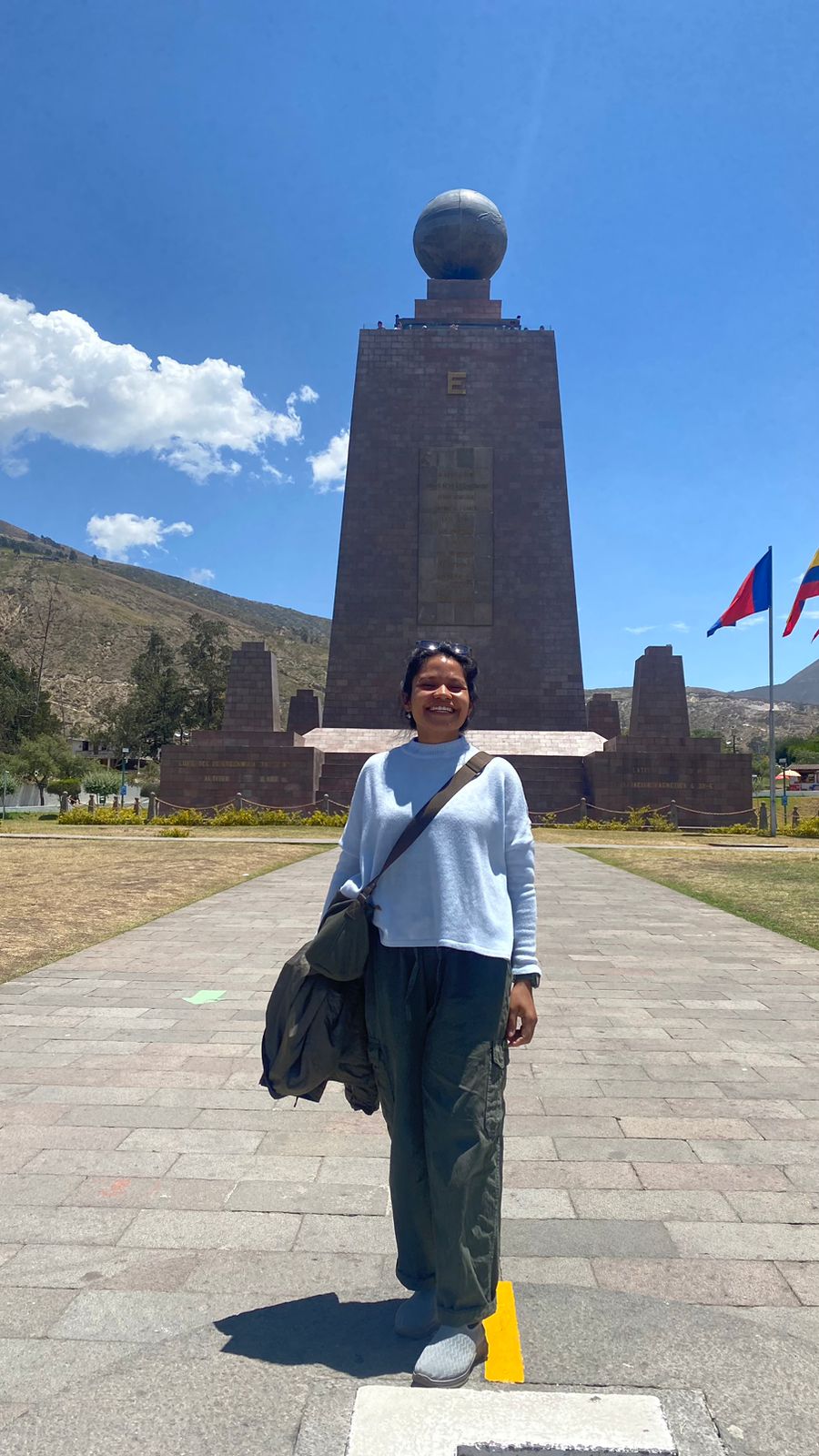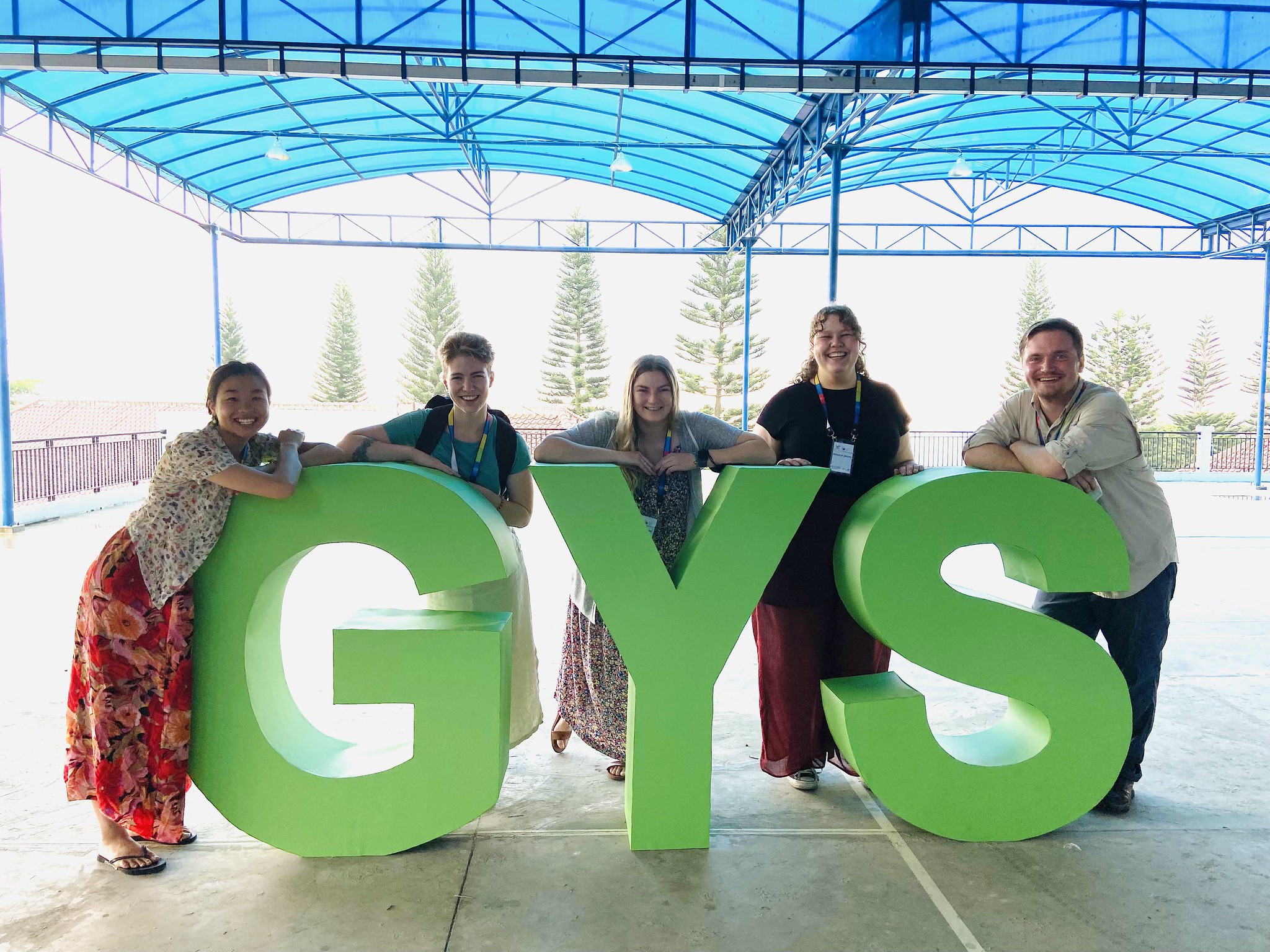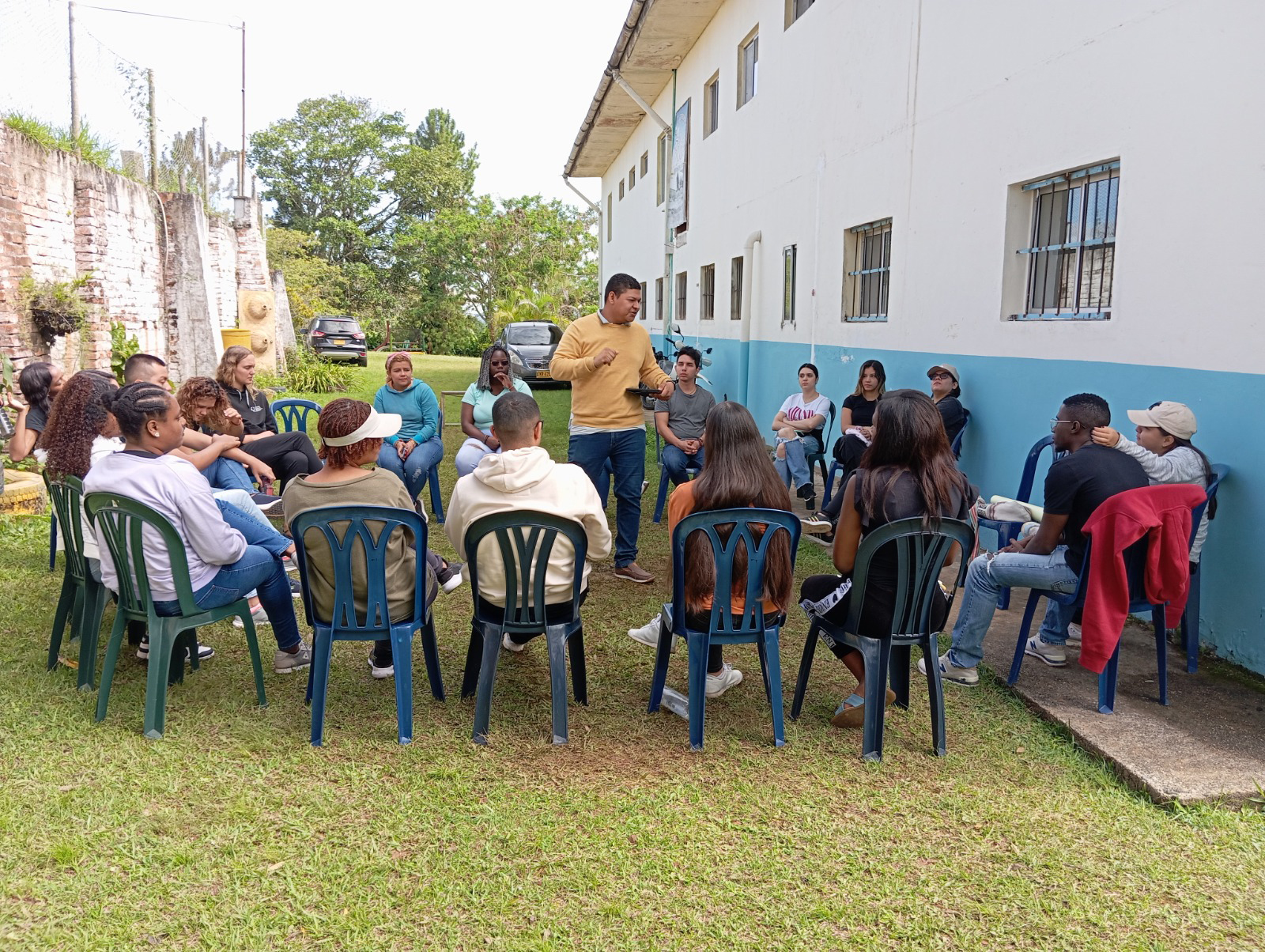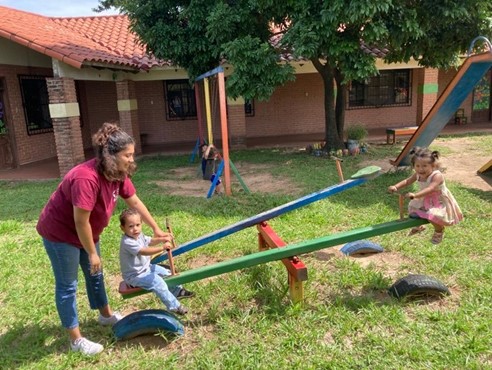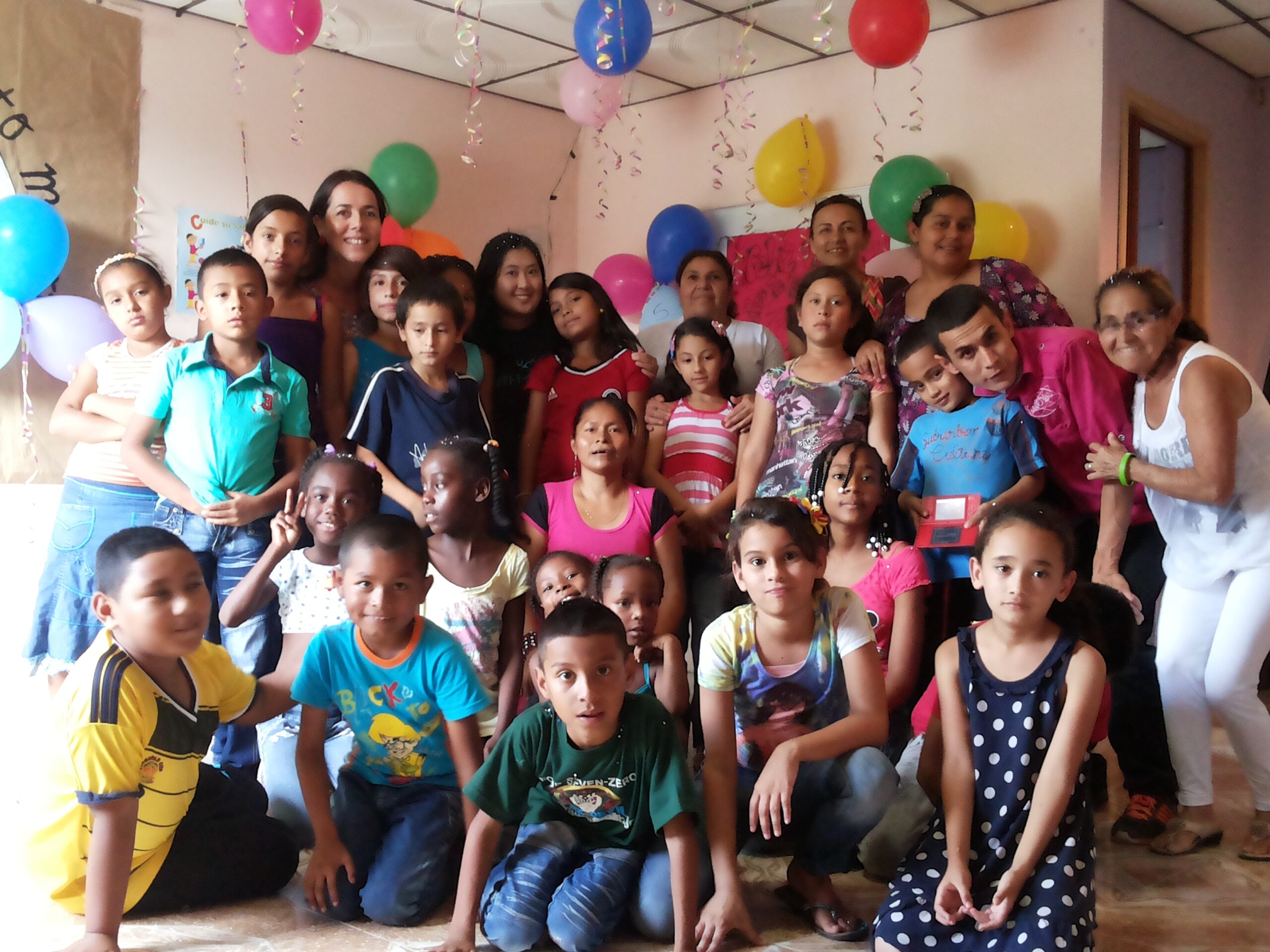-
Bigger responsibilities in the global church
At the meetings in May 2025, General Council members will vote on a proposal for every Mennonite World Conference full member to have one Young AnaBaptist (YAB) delegate in the General Council starting 2028.
-
A training ground for leaders
YABs mentor Ebenezer Mondez describes his journey from attendee at the Global Youth Summit (GYS) in 2015 to staff from 2022-2028 and his hopes for the Global Youth Summit. Young AnaBaptists (YABs) aged 18-30 are the target audience for GYS. What was it like going to GYS in the USA for the first time in…
-
Celebration of Christmas in Ghana
Photo: Mennonite church of Ghana – Dalive congregation Christmas! Christmas!! Christmas!!! Christmas in Ghana is a season of magic and wonder. Every Ghanaian has their own definition to what Christmas means to them. It reminds me of the fact that no matter what one might go through, nothing is permanent. It brings joy and assurance…
-
“They just want me to learn”
From Indonesia to Bolivia – a YAMEN year through the five senses: This is how Arni Alice Paidjo describes her time in Bolivia, Santa Cruz. The member of Gereja Kristen Muria Indonesia (Muria Christian Church of Indonesia, GKMI) in Salatiga, Indonesia, served with YAMEN 2023-2024. The Young Anabaptist Mennonite Exchange Network (YAMEN) program is a…
-
Investing in young adults is key
“Investing in young adults is a key way to move forward. Mennonite World Conference is the best way I can imagine to do that,” said Doug Klassen, executive minister of Mennonite Church Canada and the North America representative on MWC’s Executive Committee. The member church of Mennonite World Conference puts its money where its mouth…
-
What does peace need to thrive?
A YAMENer’s reflection from Colombia Peace doesn’t look the same in every context. That’s a lesson that Hector “Ramon” Calix Dueñas says he’s learning during his YAMEN (Young Anabaptist Mennonite Exchange Network) year in Colombia. “Ramon” Calix Dueñas is 27 and from Saba, Honduras, where his parents are pastors of Iglesia Evangélica Menonita Hondureña, the…
-
Meeting Jesus in another culture
Before Esther Aguilar began her Bolivian adventure, she asked God for one thing: to teach her in a deeper sense the commandment where Jesus says, “You must love the Lord your God with all your heart, all your soul, and all your mind. (…) A second is equally important: Love your neighbor as yourself (Matthew…
-
Graphic design and cooking pave the way to emotional resiliency
What do cooking and graphic design have in common? For Adi Nugroho, it’s never been about mastering either of these skills. Technical skills are simply the backdrop for developing emotional tools and creating a space for connection, even across cultures. When Adi’s host mom, Angela Opimi, was asked if she’d like to open her home…
-
Unexpected placement equips for future service
Stephanie Setiawan from Sidoarjo, Indonesia, had no plan to go to Latin America. She applied for Mennonite Central Committee’s International Volunteer Exchange Program in 2013/2014, but the slot for her synod was already taken. The coordinators offered her a YAMEN placement in Colombia instead. As a result, Stephanie Setiawan discovered a love for Latin culture…
-
Praising God together across barriers
“I can see one family with a lot of members, worshipping the same Father,” says Natacha Kyendrebeogo from Burkina Faso. She is one of four young people serving through YAMEN on the Mennonite World Conference (MWC) Assembly team in Indonesia. YAMEN (Young Anabaptist Mennonite Exchange Network) is a program that places emphasis on expanding the…
